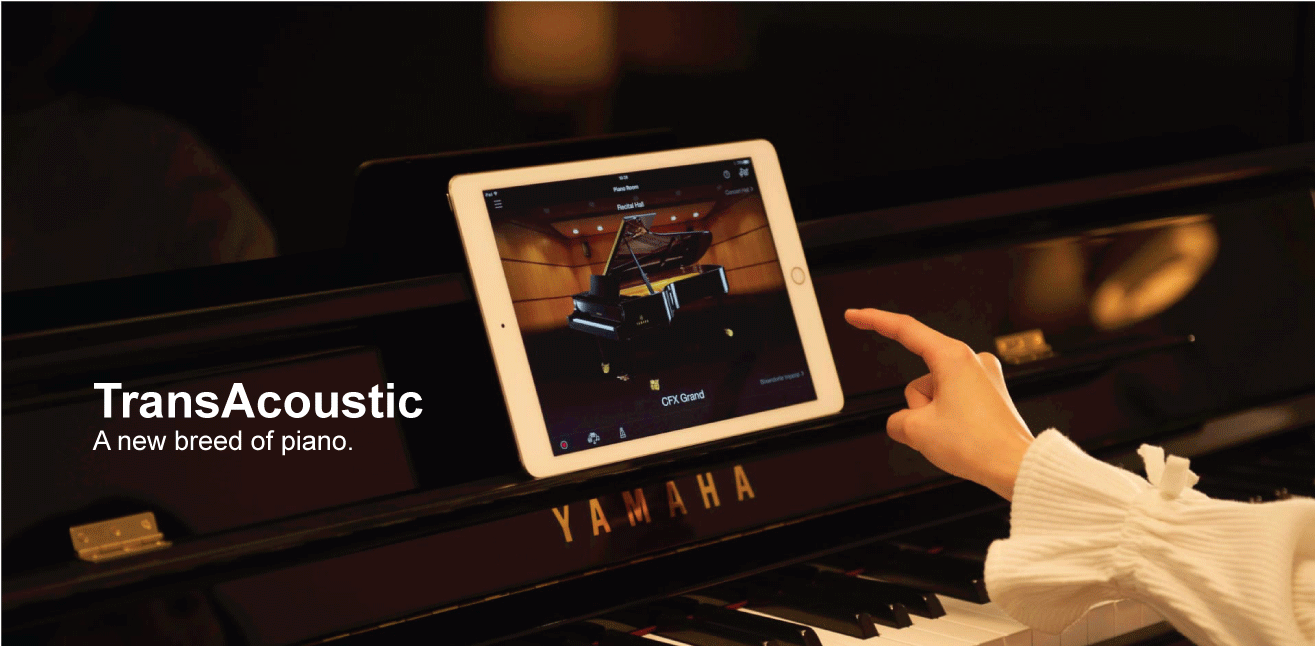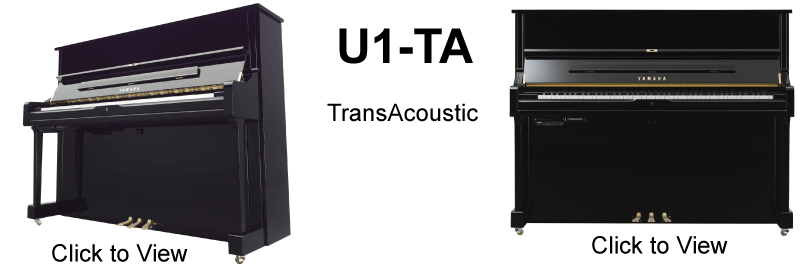Your shopping cart is currently empty. .

The TransAcoustic™ Piano introduces a new way for piano players to emotionally connect with their instrument.
The touch of the keys, the embodiment of sound, the resonance of strings; TransAcoustic Technology enhances the playing experience by using all elements of the acoustic piano to augment and amplify non-acoustic sounds. This means that any sound can be delivered through this naturally resonant piano.


On TransAcoustic™ Upright pianos, activate TransAcoustic™ mode by depressing the center pedal and sliding it to the left. This brings a hammer stop rail into place and prevents the hammers from striking the strings. On TransAcoustic™ Grand Pianos the hammer stop rail is engaged by using a motorized system.
A non-contact continuous optical sensor system is used to register the depth and velocity at which keys are depressed. Along with the key sensors, grey-scale shutters are installed under each of the 88 keys. A grey-scale shutter is a small, thin plate whose optical transmission increases towards its bottom while an LED light beam is constantly radiated inside a key sensor. When a piano key is depressed, a grey-scale shutter blocks that light, with the amount of light blocked increasing in proportion to the depth of the keystroke. Based on the amount and traveling speed of the blocked light, the sensor registers keystroke depth and velocity as well as the timing at which muting should occur.
The registered information is then transmitted to the instrument's tone generator. Using the control unit you can select your sound and volume.
The tone generator sends audio that is optimized for the TransAcoustic™ system to the instrument's transducers. The transducers then output the signal through the proprietary linkage system and the coils excite the soundboard causing it to vibrate. The result is a full-range, digitally generated sound that is acoustically amplified and enhanced. The sound energy traveling through the soundboard is also transferred to the bridge, activating the strings and creating natural string resonance.
A non-contact continuous optical sensor system is used to register the depth and velocity at which keys are depressed. Along with the key sensors, grey-scale shutters are installed under each of the 88 keys. A grey-scale shutter is a small, thin plate whose optical transmission increases towards its bottom while an LED light beam is constantly radiated inside a key sensor. When a piano key is depressed, a grey-scale shutter blocks that light, with the amount of light blocked increasing in proportion to the depth of the keystroke. Based on the amount and traveling speed of the blocked light, the sensor registers keystroke depth and velocity as well as the timing at which muting should occur.
The registered information is then transmitted to the instrument's tone generator. Using the control unit you can select your sound and volume.
The tone generator sends audio that is optimized for the TransAcoustic™ system to the instrument's transducers. The transducers then output the signal through the proprietary linkage system and the coils excite the soundboard causing it to vibrate. The result is a full-range, digitally generated sound that is acoustically amplified and enhanced. The sound energy traveling through the soundboard is also transferred to the bridge, activating the strings and creating natural string resonance.



.jpg)